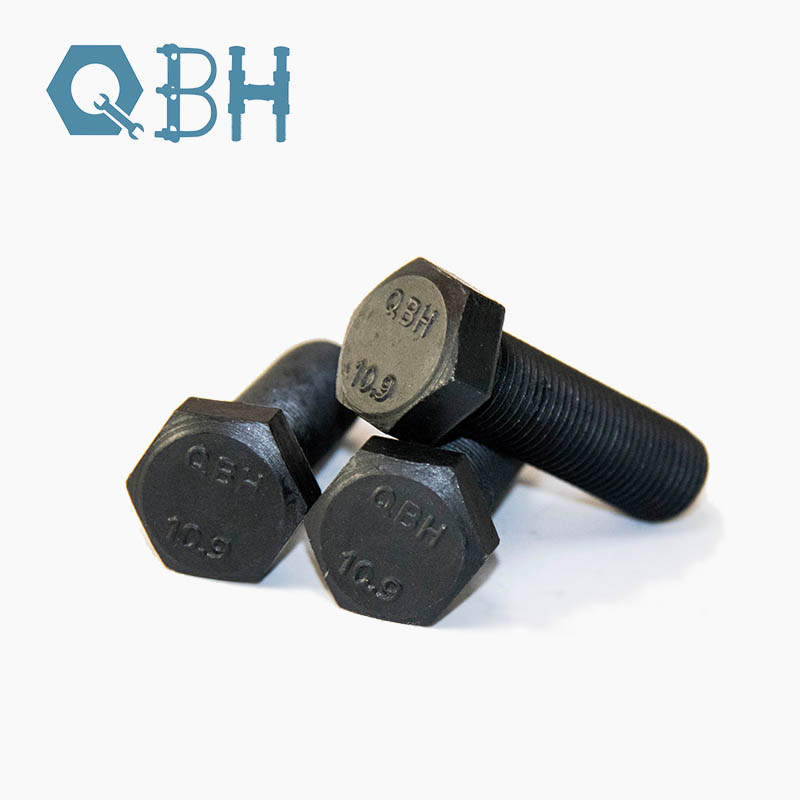Why Are Heavy Hex Bolts Crucial for Structural Integrity and Heavy-Duty Applications?
2025-02-21
When it comes to building strong, durable structures or assembling machinery that can withstand extreme pressure, what makes heavy hex bolts the go-to choice for engineers and builders? What sets them apart from standard bolts, and why are they so critical in industries that require heavy-duty fastening solutions?
What Exactly Are Heavy Hex Bolts?
Heavy hex bolts are a type of bolt that features a larger, thicker hexagonal head compared to standard hex bolts. This unique design allows for greater torque and load-bearing capacity, making them ideal for applications where strength and reliability are of the utmost importance. The heavy hex bolt's enhanced design ensures that it can handle the high levels of stress and pressure encountered in industrial, construction, and mechanical environments.
The "heavy" part of the name refers to the thicker, wider head and body of the bolt, which gives it superior strength and resistance to deformation. These bolts are often made from high-strength materials, such as carbon steel or stainless steel, and are designed to meet rigorous industrial standards, making them an essential component in heavy-duty applications.
Why Are Heavy Hex Bolts So Important?
1. Increased Load-Bearing Capacity
One of the primary reasons heavy hex bolts are favored in heavy-duty construction and manufacturing is their ability to handle significant loads. The larger head allows for more surface contact with the materials being fastened, distributing the load more evenly and reducing the risk of failure under heavy pressure. This makes them indispensable in applications where safety and structural integrity are paramount.
2. Greater Torque and Strength
The thicker head of a heavy hex bolt allows for higher torque to be applied during installation. This means that the bolt can be tightened more securely, ensuring a stronger and more reliable connection. For applications that involve heavy machinery or high-stress environments, this extra torque capability ensures that bolts will not loosen or break under extreme conditions.
3. Resistance to Deformation
In many industrial applications, bolts are exposed to intense forces, high temperatures, and environmental factors like corrosion. Heavy hex bolts are specifically designed to resist deformation under these harsh conditions. Whether used in oil rigs, heavy machinery, or large infrastructure projects, their robust design ensures a longer service life, reducing the need for frequent replacements.
4. Versatility in Heavy-Duty Applications
Heavy hex bolts are commonly used in a wide variety of industries, from construction and infrastructure to automotive and manufacturing. Their versatility allows them to be used in a range of high-stress applications, including:
Structural Steel Construction: Heavy hex bolts are widely used in the construction of bridges, skyscrapers, and other large buildings, where they provide the strength needed to support the weight of the structure.
Heavy Machinery: In the manufacturing of large machines, such as industrial presses, crushers, and vehicles, heavy hex bolts are used to secure critical components.
Oil and Gas: Heavy hex bolts are commonly found in the oil and gas industry, where they are used to secure pipelines, rigs, and other high-pressure equipment.
Are Heavy Hex Bolts Always the Best Choice?
While heavy hex bolts are ideal for applications requiring high strength and durability, they are not always the most suitable option for every project. Their larger size may not be necessary in lighter applications or where space is limited. In cases where a smaller or more aesthetic fastener is needed, other types of bolts, such as standard hex bolts or socket head bolts, may be more appropriate.
However, for projects that involve heavy-duty materials, high-torque requirements, or the need to withstand extreme environmental conditions, heavy hex bolts are often the best choice.
Conclusion
So, why are heavy hex bolts crucial for structural integrity and heavy-duty applications? The answer lies in their exceptional strength, load-bearing capacity, and resistance to deformation. Designed to handle extreme forces and stresses, heavy hex bolts are essential in industries that demand the highest standards of reliability and durability. Whether securing large-scale construction projects or heavy machinery, these bolts provide the strength needed to ensure long-lasting and secure connections, making them a vital component in many industries.



